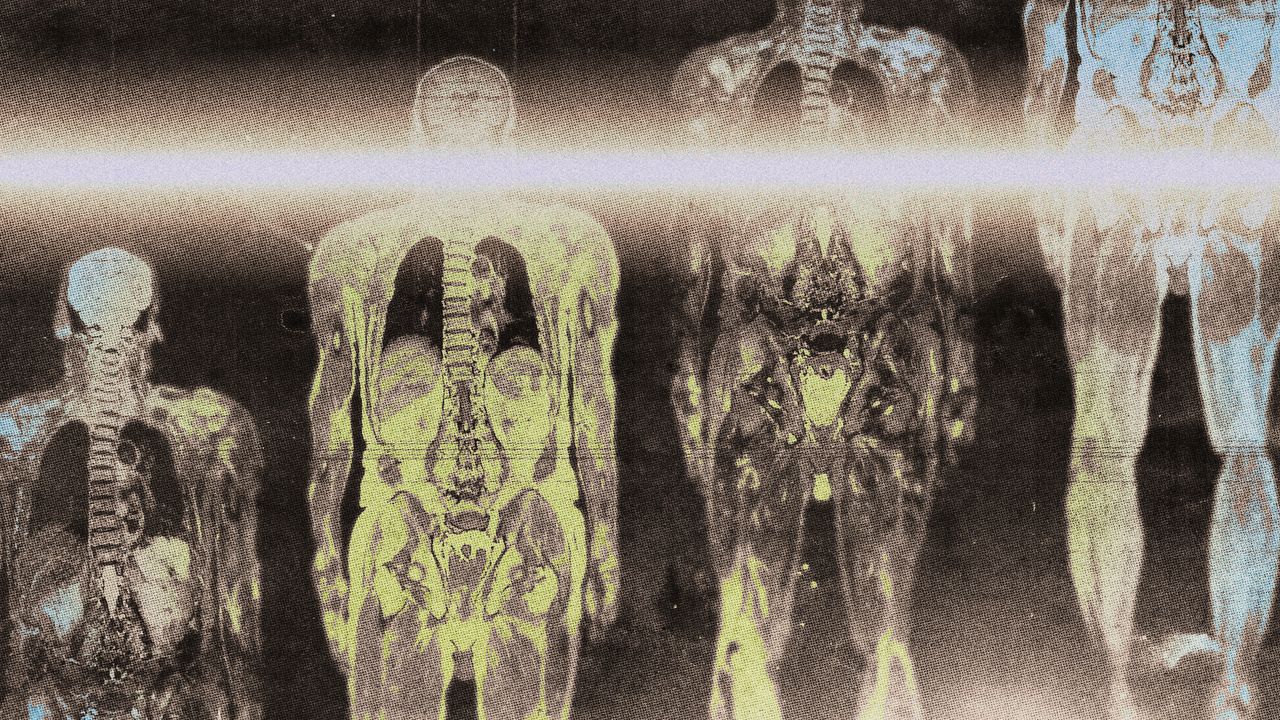It’s 11 a.m. on a Monday and I’m in my underwear, standing inside a sci-fi-like version of an airport security scanner. This is my first body scan. I’m about to have my insides documented in a process that takes more than 2,000 photographs in a single second.
I stand there thinking: Why did I wear these boxer shorts? And also: Why did I let my diet slip this much? But then, that’s why I’m here: To confront uncomfortable truths about my health. An automated voice warns me to close my eyes, it’s photo time. A white flash, then it’s over.
I’ve wanted to undergo a complete body scan for some time now. As someone who writes a lot about wellness, experts I speak to are constantly reminding me to lift weights, run, eat fiber, and sleep well. And I try, but there’s no real way of knowing whether it makes a difference in my health. The number on a weighing scale might go down as you exercise. You might have less aches and pains as you focus more on recovery, and you may feel less stressed the more you meditate, and rest. But other than going by how we feel, how can we know for sure that we’re actually healthy?
In the last decade my remaining grandparents have died from a grab bag of illnesses like cancer, Alzheimer’s, stroke, and heart disease. My father was diagnosed with Type 2 diabetes. I’m immunocompromised. Which means there’s potentially a lot of nasty stuff in my future. I figured a body scan might help me course correct before it’s too late.
What does a body scan entail?
My scan takes place at the flagship clinic of the preventative health care clinic Neko Health in Spitalfields, east London. Stepping through their doors is like walking into a cross between 2001: A Space Odyssey and an episode of Black Mirror. After being led upstairs, I’m given a pair of rubbery, angular slippers and am asked to change into a peach gown. From here, I meet a friendly nurse named Katie in a small room with a bed and various medical apparatus descending from the ceiling. Katie talks me through the procedure. I’ll begin with the full-body scan mentioned above, with thermal cameras looking for signs of inflammation, then I’ll undergo a grip test—a great marker of the ability to recover from illness in later life. After that, an eye pressure test, like at the opticians, to look for signs of glaucoma, a blood test, and then some more scans.
To distract myself while she takes my blood, I tell Katie I’m mostly worried about being at risk of diabetes, given my sweet tooth and the fact I’m currently a little heavier than I’d like. She sympathizes, and it’s good to hear that even a health care professional at a high end clinic like this is a chocoholic too. ”Exercise will do you so many favors,” she says.
